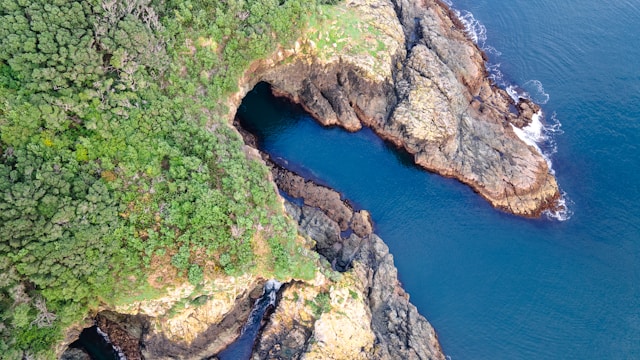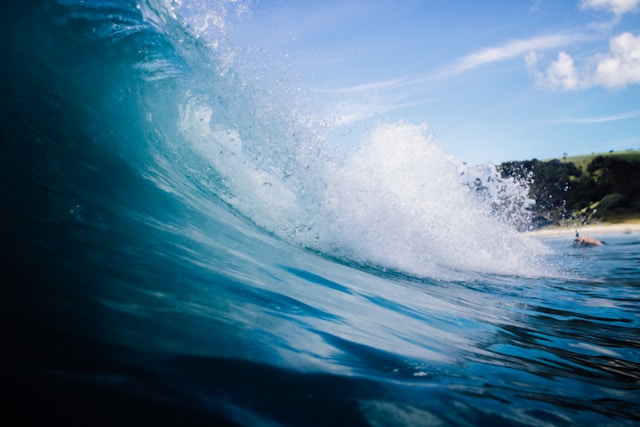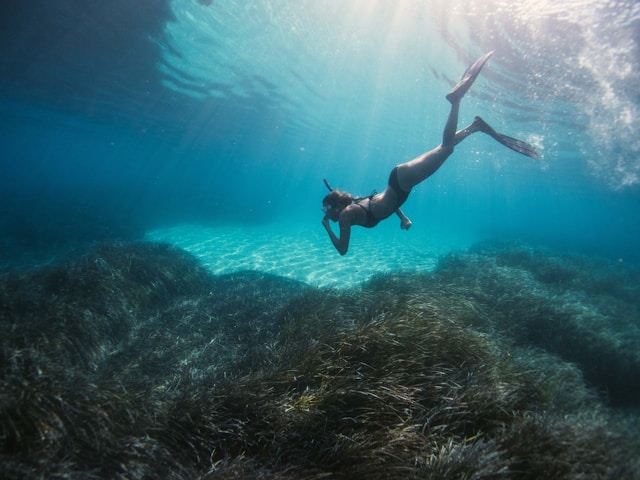Scuba Diving And Snorkeling In Auckland

Goat Island Marine Reserve
Cape Rodney-Okakari Point Marine Reserve is widely recognized as New Zealand’s foremost fully safeguarded marine reserve. It is commonly referred to as Goat Island (or Leigh) Marine Reserve. Despite encompassing merely 5 km of coastline, it attracts over 300,000 visitors annually (according to the last tally conducted many years ago). It also holds the distinction of being the oldest marine reserve in the nation, and the inaugural reserve established in the Southern Hemisphere, founded in 1975 by researchers at the adjacent Leigh Marine Laboratory.
Accessibility
The reserve is readily accessible for families. Goat Island itself is situated merely 100 meters from the secure beach entry within the Marine Reserve. Renowned for its astonishing snorkeling and diving opportunities, it provides secure and shallow conditions.
Exploring the Reserve
With the channel only 2 meters deep and west of the island ranging from 3 to 8 meters in depth, this sheltered environment remains tranquil and an effortless location to explore. You can engage in snorkeling and diving directly from the beach all year round, making it a convenient means to observe a plethora of marine life. Snorkeling equipment can be rented for the day. Alternatively, if you lack confidence or prefer to participate in a guided snorkel excursion.
Rules and Regulations
Access to Goat Island Marine Reserve is GRATIS! Visitors are encouraged to picnic, swim, and generally relish a day at the seaside, but please adhere to the customary marine reserve regulations: refrain from removing anything except your litter, and if you disturb the rocks, kindly return them to their original positions.
Other Activities
For those disinclined to get wet, the reserve also presents glass-bottom boat excursions. Marine fauna is abundant in the reserve, given its status as New Zealand’s premier underwater sanctuary. Don’t overlook the opportunity to explore the Goat Island Marine Discovery Centre, just a brief stroll from the shoreline, to delve deeper into the research and marine biodiversity of the region.
Famous Residents
If you’re fortunate, you may catch a glimpse of one of the reserve’s renowned snappers—Monkey Face and Charlie Lip. Monkey Face bears an uncanny resemblance to a primate and has resided in the reserve for over four decades. Charlie Lip shares a similar appearance, and both snappers measure over one meter in length!
After Snorkeling
Following a day in the water, consider dropping by Leigh Sawmill for a pizza and a refreshing beverage.

Tawharanui
The Tāwharanui Marine Reserve is a fantastic spot for families, with beaches edged by beautiful pōhutukawa trees, great places to swim and explore rock pools. It stretches along the north side of Tāwharanui Regional Park (located on the Takatu Peninsula) and is just a car ride of about 90 minutes away from Auckland. Located on the east side of the Peninsula, this park is home to some of the most stunning white sand beaches, pastures, native forests, and wetlands that are healing and growing back to their natural state. Tawharanui is famous for its plentiful Crayfish and easy-to-explore, gentle diving spots, making it perfect for those just starting out. You might spot 13 different kinds of wildlife, including Eagle Rays, Seals, and Stingrays. Your best chance to see them is from August to January. There are 4 places where you can learn to dive safely. The maximum depth you can dive is 12 meters or 39 feet. This place is great for beginners.
Canterbury Wreck
The former Navy Frigate Canterbury F421 was scuttled on November 2007 at Deep Water Cove in the Bay of Islands. You can start your dive at the front of the ship, which is about 20 meters down. More advanced divers can explore the very back of the ship up to 36 meters.
Auckland Scuba Diving & Snorkeling Tours and Courses
There are several PADI Dive Shops near Auckland where you can learn Scuba Diving, Technical Diving, Freediving, Snorkelling/ Swimming, Conservation, First Aid/ CPR. During a scuba diving course, you'll learn how to use special equipment like a mask, fins, and a tank full of air. Elearning courses starts at $100. Multi-day diving courses cost $500 and more. To earn a Scuba Diving Certification you need to learn diving principles and terminology then make fours dives with the instructor. Junior courses are available for kids who are at least 10 years old.

Auckland Scuba Diving & Snorkeling Equipment Hire Service
- Wetsuits from $20 per day
- Dive Tanks from $20 per day
- Regulators with computer, compass & octi from $25 per day
- BCD from $25 per day
- Scuba Mask, Fins, Snorkel & Boots from $30 per day
- Pocket Weight Belt from $10 per day
- Alluminium Cylinders from $20 per day
- Fulls sets from $80 per day
If you decide to rent equipment for more than one day, prices are usually lower for subsequent days. We recommend making reservations several days in advance to make sure you get what you need. Happy diving!

Snorkeling & Scuba
From $100

Snorkeling & Scuba
From $100

Snorkeling & Scuba
From $100

Snorkeling & Scuba
From $150

Snorkeling & Scuba
From $200

Snorkeling & Scuba
From $200

Snorkeling & Scuba
From $150

Snorkeling & Scuba
From $200

Snorkeling & Scuba
From $300